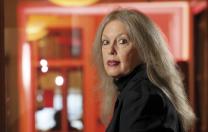This spring, Elaine Scarry is teaching two courses: a purely literary class on the three Brontë sisters, and “The Problem of Consent,” drawing examples from literature, medicine, political philosophy, and the law, and enrolling students from the Law School as well as the College. Though her home base is Harvard’s English department, Scarry has never limited her scholarship to literature.
From the beginning, she says, her work has focused on two areas: “the problem of injury, and why it is so hard to get people to care about it;” and “the great pleasure of beauty and creation.” The first of Scarry’s 10 books, The Body In Pain (1985), offered a searching exploration of physical pain in medical, military, legal, scientific, and literary contexts. Dreaming by the Book (1999) inquired into how poets get readers to form vivid mental images. On Beauty and Being Just (1999) argued that encounters with beauty “call us either to educate ourselves, or to try to repair the injuries of the world.” Since 1987, she has been researching the issues involving consent to war expounded in Thermonuclear Monarchy; in recent years she has lectured on its themes at law schools and humanities forums.







